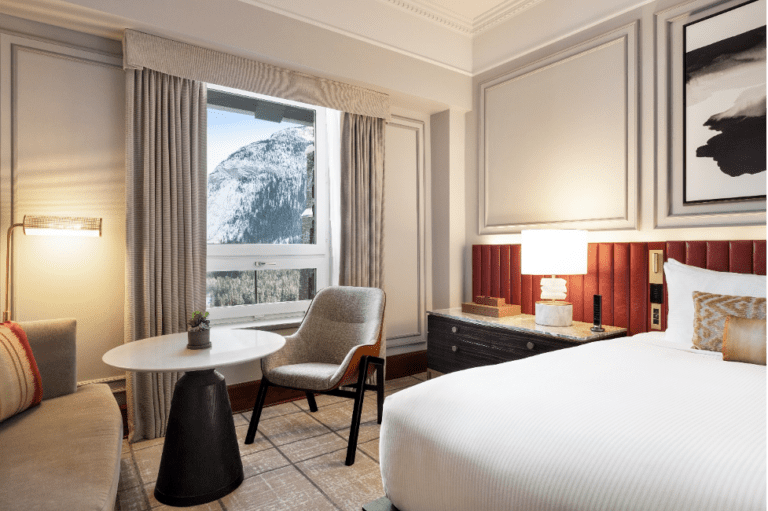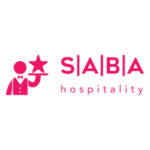
For Canadians, Fairmont is not just a hotel brand but a fixture of our nation’s history. In the decades following the country’s confederation in 1867, towns that connected the Eastern hubs of Montreal, Toronto, Quebec and Ottawa with the still-budding Western ports of Vancouver and Victoria were few and far between. It fell up Canadian Pacific – the company that would eventually sell its hotel division to Fairmont Raffles Hotels International then to Accor in 2016 – to not only build a transcontinental railway but to erect a series of what we now deem iconic hotels along the route.
The Fairmont Banff Springs, first opened in 1888, is one such gem from this nation-building era. Perhaps a shock to some of you, but the business of hospitality has indeed changed in the past 130 some-odd years, and so too must the 764-key Fairmont Banff Springs reinvent itself from time to time. As such, we were excited to tour the property following its most recent $35 million renovation then report on what was accomplished and how it fits into a greater industry trend.
This latest refresh was focused on the hotel’s luxury guestrooms and suites, including the transformation of Fairmont Gold – an exclusive hotel-within-a-hotel experience. This involved the renovation of the fifth floor, now devoted solely to Fairmont Gold (with some Fairmont Gold rooms on the fourth floor). All Fairmont Gold rooms and suites received upgraded finishes, and a club lounge area was added with convenient food options and a quiet room. As well, a special Fairmont Gold arrival experience was created by restoring the property’s original motor court that faces directly onto the mountains and having guests enter through a separate lobby.
Without getting too far into the details just yet, the lesson for readers is how this Fairmont Gold-oriented capital improvement taps into a global trend that’s accelerated in the post-pandemic era centered around the ‘price inelastic yet experience elastic’ hotel consumer.
To fully understand the strategy behind this renovation and how it meets this trend head on with an elevated guest experience, we sat down with the General Manager at Fairmont Banff Springs, Gregor Resch, in his office on premises for a casual discussion about the state of the industry and the launching Fairmont Gold at a historic hotel.
Besides his GM duties, Resch is also Regional Vice President, overseeing executive decision making for all properties in the Canadian Western Mountain Region – including Fairmont Château Lake Louise and Fairmont Jasper Park Lodge in Alberta, and Fairmont Château Whistler in British Columbia – as well as playing a guiding hand in the rebranding and renovation of the Rimrock Resort just up the street from Fairmont Banff Springs, which was only brought under the Accor banner in June 2023.

The money value of time
Turning the financial concept of discounting – for reference, known as the ‘time value of money’ – on its head, per the subheading the big global hospitality trend in the upscale, luxury and ultraluxury segments is that nightly rates and prices aren’t nearly as important as maximizing one’s time and experience while visiting a destination. With this in mind, the concept behind Fairmont Gold is to offer luxury guests beautifully appointed rooms with a more intimate, club lounge experience.
Touring the results of the renovation and Fairmont Banff Springs executes to the fullest. With a rotunda driveway that jogs around and past the grand frontage of the hotel, every guest’s arrival experience is punctuated by a backdrop of the lush forests surrounding the confluence of the Spray and Bow Rivers with the snowcapped Rocky Mountains behind. This is ‘sense of place’ in its truest form. Past the new check-in desk and up to the dedicated Fairmont Gold floor area, all guests are treated to the convenience of a ‘flexible and delectable’ dining space with catered bar service, an adjoining reading room and windows throughout facing onto Mount Rundle in the distance.
The idea behind a club lounge that Fairmont Gold and other leading brands are investing in is worth exploring some more because it fits into the modern paradigm for exclusivity and the aforementioned flexibility. Really, though, it’s peace of mind that consumers are after.
Many guests are willing to pay more for a sense of privacy and having a third space near to their room or suite where they can casually unwind with some light, complimentary refreshments. In this case, those snacks and beverages come along with inspirational mountain views. With the nature of travel and technology nowadays, people’s schedules are simultaneously more frenetic and relaxed, so not every meal needs to be an elaborately catered affair. Sometimes it’s better for the guest overall enjoyment of a property to facilitate some buffet-style, hands-off foodservice, albeit with an execution that always reflects the culinary team’s expertise.
The economics of upleveling
It’s easy to take a glance at the town of Banff and remark with a ‘If you build it, they will come’ attitude regarding the establishment of a new hotel product in the luxury category. But as Resch noted, while this latest Fairmont Gold renovation indeed opens up the destination to a new type of traveler, it’s never that simple when it comes to getting the project off the ground.
Notably, there was a concern amongst ownership about the reduced gross operating profit (GOP) margins per key for the Fairmont Gold product (roughly 70% GOP) versus the other rooms at Fairmont Banff Springs (roughly 75% GOP). On a per-unit basis this is true, but the average ADR for Fairmont Gold rooms is north of $450 higher – albeit with a greater suites contribution – meaning that the total volume of revenues is significantly better even with the slight drop of per-key margins.
Not only that but the team has observed that Fairmont Gold guests have a longer length of stay (LOS) and they spend more on ancillaries per guest during their time onsite (TRevPAR). All this is to say that when you look at the metrics holistically, upleveling a section of the hotel makes complete sense.
And while on the topic of ancillaries and TRevPAR, the Fairmont Spa was another spot on our tour. This 48,000-square-foot facility features a gigantic mineral pool treatment rooms and a full exercise area, all with a very Alpine feel and thermal focus. For the summers, they have a sprawling terrace facing onto the mountains for outdoor yoga. Of note, hotel guests book on average around a month in advance for any appointments, while the facility also attracts a lot of locals for memberships.
To circle back to the notion of an elevated experience via amenities like an exclusive lounge and access to a world-class spa, what Resch also highlighted as critical for giving Fairmont Gold customers maximum value for their time is the nature by which they book people into these on-prem experiences so that no hotel guest is disappointed. Similar to spa appointments, another unforgettable experience would be to golf course that snakes around the river valley, and yet wouldn’t it be a shame if a guest were to miss out because the tee time they wanted was no longer available?
To fulfill this need in as frictionless a manner as possible, the team is testing out a property experience management system (PXMS) that can act as a one-stop shop and itinerary planner for guests with connections into Opera, OpenTable (restaurants), Shiji Concept (golf) and Book4Time (spa and activities). This way the hotel can deliver even more convenience on top of the other amenities catering to this modern shift. Regardless of the technology, it always comes back to the experience, and for this alone the new renovation helps keep this historic property in line with the latest luxury trends and set for many years to come in showing guests the very best of Canada.

















